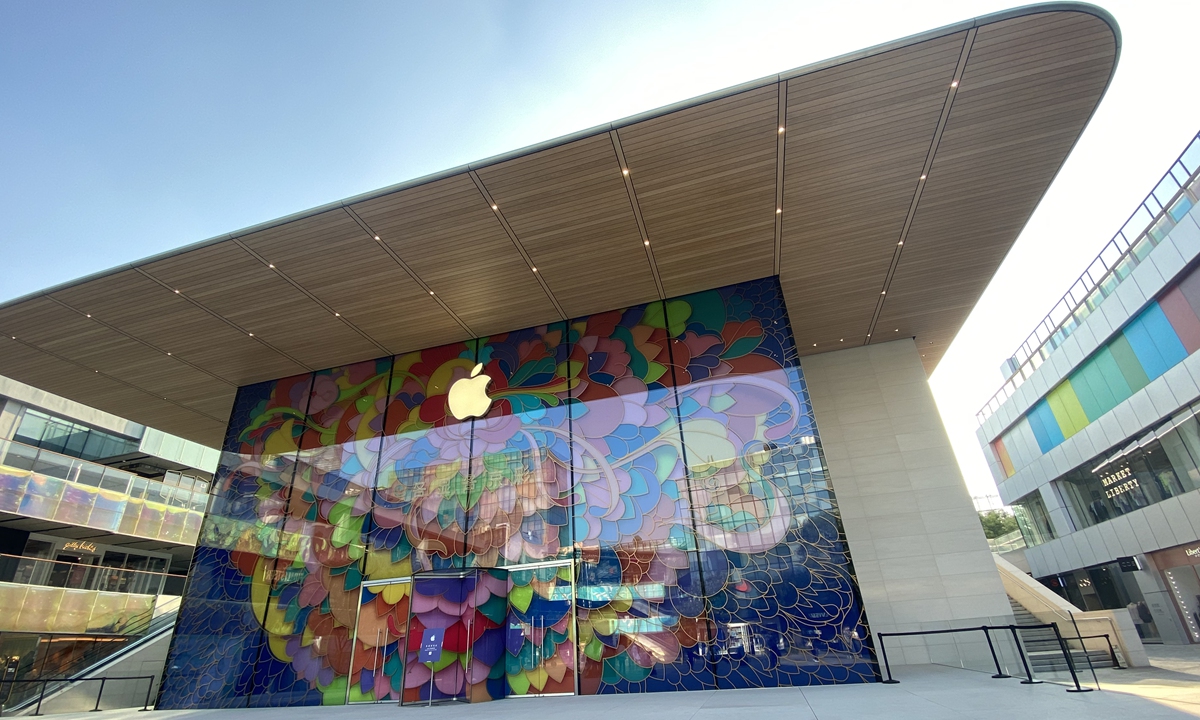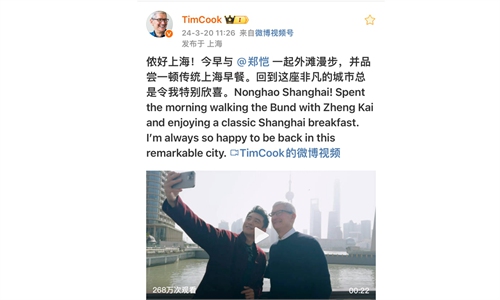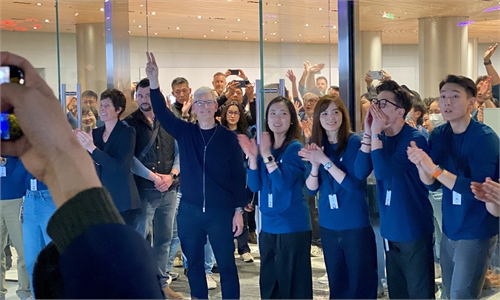
The flagship branch of Apple in Beijing File Photo:Zhang Dan/GT
Apple CEO Tim Cook's pledge to increase investment in Vietnam has drawn skeptical views from Chinese observers.
A Chinese industry analyst said Apple's move to diversify part of its supply chain away from China was partially driven by the toxic political climate in the US, where some anti-China politicians are calling for decoupling with China. However, from a purely economic view, such a move may not pay off, the analyst said.
"There's no supply chain in the world that's more critical to us than China," Cook told reporters during a visit to China in March, according to the Xinhua News Agency.
During Cook's visit, Apple opened a new flagship store in central Shanghai and held meetings with Chinese suppliers, in addition to announcing a deal to expand its applied research lab in Shanghai and the setup of a new lab in Shenzhen later in 2024.
However, Chinese netizens found that Cook is now in Vietnam, pledging to increase investment in local suppliers and announcing that investment in the country has reached an accumulated $16 billion since 2019, and some critical views were offered by Chinese internet users, according to a report by South China Morning Post on Monday.
The Global Times also found some posts on Chinese social media claiming that in recent years Apple has been leading some of its suppliers out of China and to other regions of the world.
An executive from a smartphone company based in India confirmed the news. "In the last few years, Apple original equipment manufacturer (OEM) Foxconn has been transferring some of its production capacity to India, and seasoned Chinese technicians were flown in to India to train newly employed hands there," the executive told the Global Times on condition of anonymity.
Some other Apple suppliers have been moving out of China to settle down in countries such as Vietnam and Malaysia.
Analysts pointed out that as a foreign company operating in China, Apple is entitled to make decisions over its supply chains. But they noted that Apple's supply chain relocation is to some extent driven by the toxic political environment in the US, and this may hurt Apple's supply chain efficiency.
"Some politicians in the US have for years been pushing US companies to move their supply chains out of China to countries such as India and Japan, but the actual results have been bad for companies that tried this, as the quality or cost is far from desirable in those markets," Ma Jihua, a veteran telecom industry observer, told the Global Times on Tuesday.
The relocation to Southeast Asian countries happened against this background, and can be seen as a compromise made by US companies, Ma said.
Nonetheless, Ma said electronics OEM is a labor-intensive industry and some relocation cannot be avoided as China moves up the international supply chain and value chain ladder. "But so far, most attempts to forge a supply chain entirely independent of China have all failed."
Smartphone manufacturing is now a middle- to low-end manufacturing business, as the nation's new quality productive forces such as proprietary clean-energy tech products are taking a front seat, Ma said.
Some US politicians are pushing for a series of bills, measures and bans targeting Chinese products or China-related services. TikTok, cargo cranes, automobiles and even garlic have been among the targets of US politicians in recent months.
Still, Chinese experts warned that China needs to beef up its competitiveness in key sectors and key technologies, to avoid the negative impact of supply chain shocks on its industry caused by politically driven relocation.




